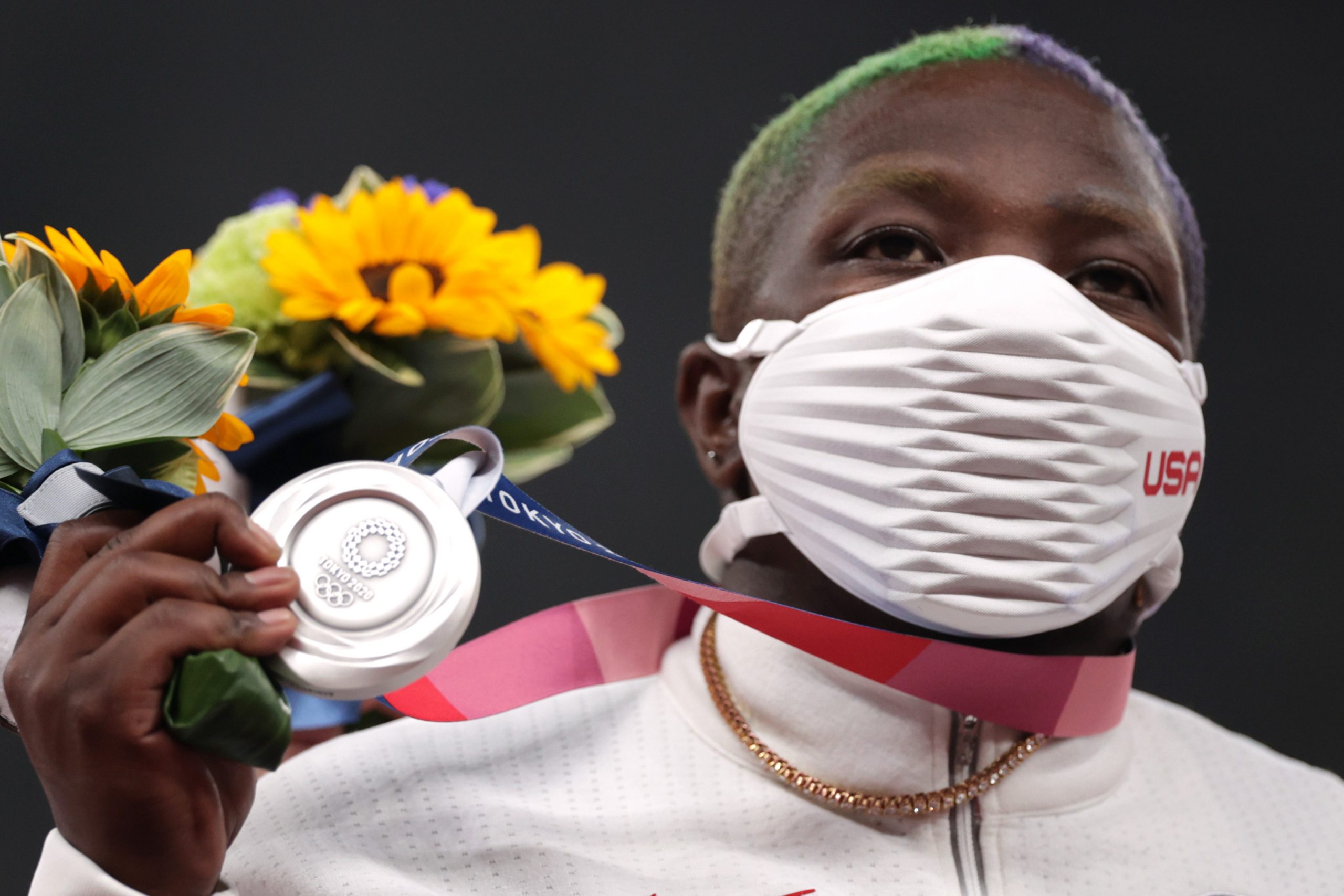
Ian Patrick, FISM News
[elfsight_social_share_buttons id=”1″]
The investigation into a medal ceremony podium gesture from U.S. silver medalist Raven Saunders has been suspended, according to an announcement from the International Olympic Committee (IOC). The suspension was issued after the death of the athlete’s mother, which Saunders announced on social media on Tuesday.
Hoping off social media for a while to take care of my mental and my family. My mama was a great woman and will forever live through me. My number one guardian angel 🙏🏾 I will always and forever love you. https://t.co/XWOjE56EjI
— Raven HULK Saunders (@GiveMe1Shot) August 3, 2021
Upon news of the death of the Olympian’s mother, IOC spokesperson Mark Adams expressed the IOC’s condolences for her loss and said the case is “fully suspended for the time being.”
As many of you will have done, we heard the very sad news this morning of the passing of Raven Saunders’ mother overnight. The IOC obviously extends it’s condolences to Raven and to her family. You . . . informed us that she is being looked after, and will be returning home. You will hopefully understand that given these circumstances the process at the moment is fully suspended for the time being.
The U.S. Olympic and Paralympic Committee (USOPC) and USA Track & Field also released a joint statement offering Saunders their “thoughts and prayers.”
The USOPC and USATF would like to offer Raven our most sincere condolences. Her mother leaves behind an incredible legacy in her daughter for who we are so proud and grateful to call our teammate. Our thoughts and prayers are with the entire Saunders family during this difficult time.
FISM News had previously reported on the controversial gesture from Saunders in which she held her arms in an “X” shape above her head to represent “the intersection of where all people who are oppressed meet,” in her own words. The IOC is typically strict when it comes to banning gestures and forms of protests during the competitions and ceremonies of the Games. They did, however, relax the rules slightly before the Tokyo Games allowing for unspecific demonstrations that were not disruptive.
